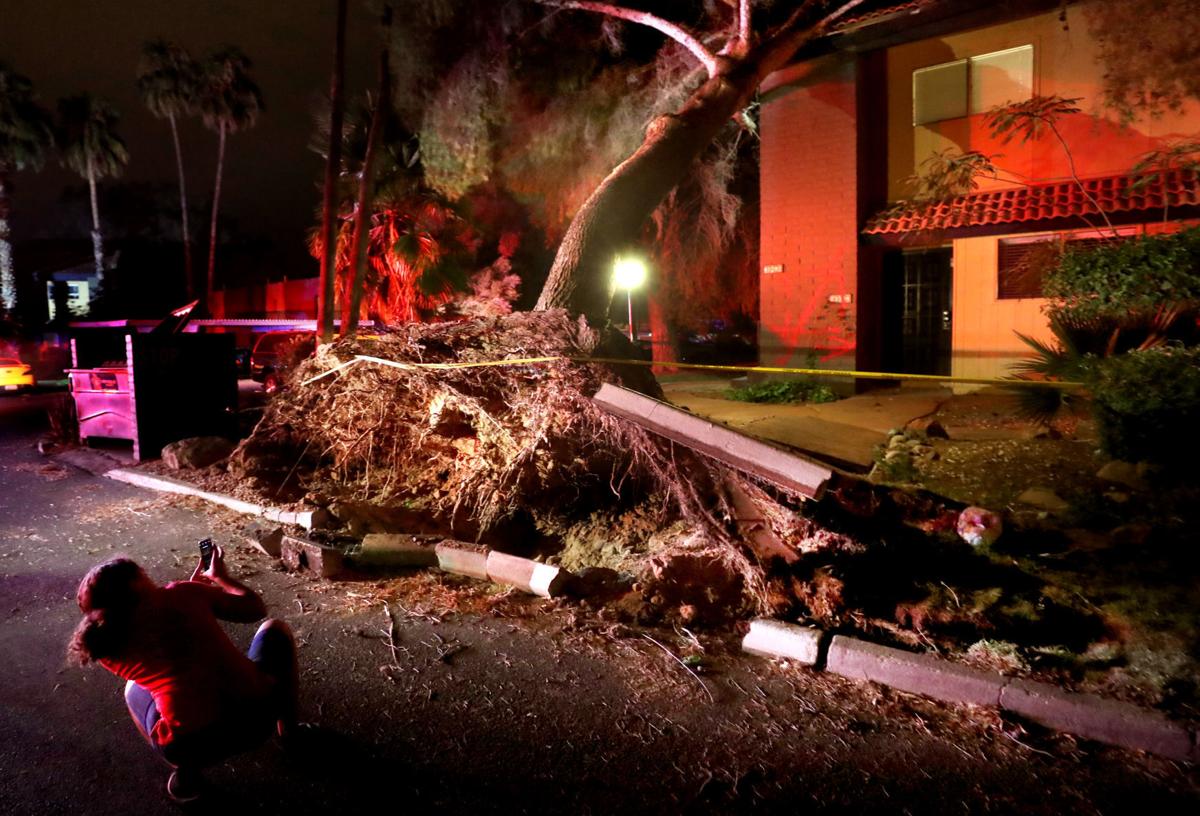Is having a backup generator a good idea?
The answer lies in how much you have to lose should the power go out.
Generators have always been popular in smaller rural communities, second homes in the mountains and with properties that are off the grid. But, with people working from home during the pandemic, we are more dependent on our homes than in the recent past.
According to Andrew Van Noy, account manager of Kohler, they are receiving record numbers of inquiries about their generators. People are wondering what would happen if the electricity went out in their home in the summer due to the wind and rain that monsoon storms bring and subsequent downed utility lines.
When electricity is interrupted it can be more than inconvenient. There can be sudden loss of air conditioning and cold storage with freezers and refrigerators. When the power turns off and on, there is the potential of damage to electronic equipment and data stored on computers. Health can be compromised with the elderly or infirmed.
People are also reading…
The solution to these concerns can be found by adding a dependable, alternate source of power.
тDual energy homes have a distinct advantage,т says Rosie. тHaving that back-up energy source can be a life saver in the event of a microburst, brushfire, traffic accident, sandstorm or flooding that knocks out the power to your home or the power grid to your community.т
More than half of major U.S. power outages from 2000 to 2016 were caused by natural hazards like hurricanes, heat waves and wildfires, according to research reported July 2018 in Reliability Engineering & System Safety.
Weтre fortunate in УлшжжБВЅ that these natural hazards are primarily seasonal sandstorms, floods and wildfires. In light of what other hazards people have to deal with in other parts of the country, we have it pretty good. But it does happen.
Question: How do generators work?
Answer: There are lots of generators on the market with varying technology. According to Van Noy, Kohler units come with control logic that constantly senses the flow of commercial power from the utility company. When the electricity ceases to come from the power company, the Kohler system automatically switches to generator power and restores the power in 10 seconds or less. When the power is restored there is a 15-minute delay before the generator turns off and the switch is reset, the entire operation is seamless and automatic.
Generators run on natural gas or propane. If a home does not have natural gas from a provider, propane would need to be made available on the property. This can be accomplished by installing a propane tank. A permit is required and there are regulations to be considered from your local governing bodies, as well as from HOAs. Regulations vary and can include limiting the size and placement of a propane tank.
Q: What size unit will I need?
A: First you will have to decide if you want a whole house solution, so everything continues seamlessly, or do you want to just keep the major items like AC, lights and refrigerator purring along? Can you get by without internet, an electric stove top and a microwave for a bit while electricity is restored? All of these questions, along with the square footage of your home, will help to ensure that you get the generator that will do the job you are asking it to do. We found out that Kohler generators for residential range from 8kw to 150kw. An 8kw unit is powerful enough to run your AC, but the most common units they sell for homes are the 14kw and 20kw, both with 200-amp auto transfer switch.
Q: Can I install a generator myself?
A: To maintain the integrity of the warranty on a new generator, most companies require them to be installed and maintained by a certified technician for the brand you choose. A certified technician will also be able to service the unit for you. Check the warranty before moving forward. You will want to make sure someone in your area can provide the service you need before purchasing a unit.
Q: What kind of maintenance do generators require?
A: Like any equipment with a motor, your unit will require regular maintenance. Some generators are programmed to perform a weekly check to ensure that they are ready to go when the need arises. With todayтs technology, some units have an app or online portal that allows you to monitor the unit from wherever you are.
Rosie Romero is the host of the Saturday morning тRosie on the Houseт radio program, heard locally from 10 to 11 a.m. on KNST (790-AM) in УлшжжБВЅ.



















